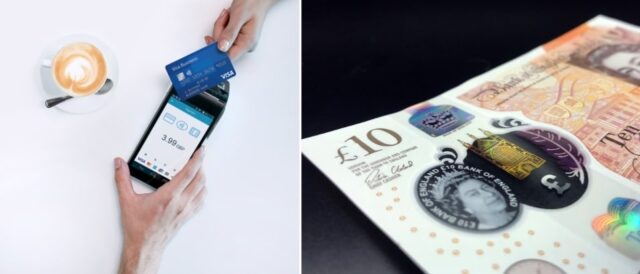EXPERTS are warning consumers that making contactless card payments is still preferable to avoid germs and bacteria.
A new plastic £20 note was released yesterday (Thursday) – heralded by the Bank of England as being more durable and more hygienic than the old paper version.
But despite the promise the new cash is cleaner – research shows otherwise.
Scientific research by the London Metropolitan University found the £5 and £10 polymer notes already in circulation held EIGHT types of bacteria between them when tested.
That included Listeria – which can cause nausea, diarrhoea and even miscarriages – and the antibiotic resistant Enterococcus faecium.
Staphylococcus Aureus (MRSA) was found on the £10 notes during the study, conducted in 2018.
An expert from London-based electronic payments provider myPOS, said: “Using a contactless card to make transactions is so much safer than handling notes and coins which can hold life-threatening bugs.
“With each note and coin likely to have been touched by thousands of people, you can only imagine how much bacteria they are exposed to – whereas a debit or credit card is easy to keep clean.”
Polymer bank notes are also favoured for their difficulty to counterfeit and were first introduced as currency in Australia in the 1980s.
But research carried out in the Netherlands in 2013 found that polymer notes used in Romania allowed ‘the growth and transmission of multi-drug resistant pathogens’.
The expert added: “We are fast becoming a cashless society, so much so it’s now less convenient to get cash out of an ATM rather than make a card payment.
“And, looking at the scientific evidence, people who use card payments instead could be saving themselves from a number of health risks.”
The last polymer note to be issued in the UK will be the £50 note which will be issued in 2021.




